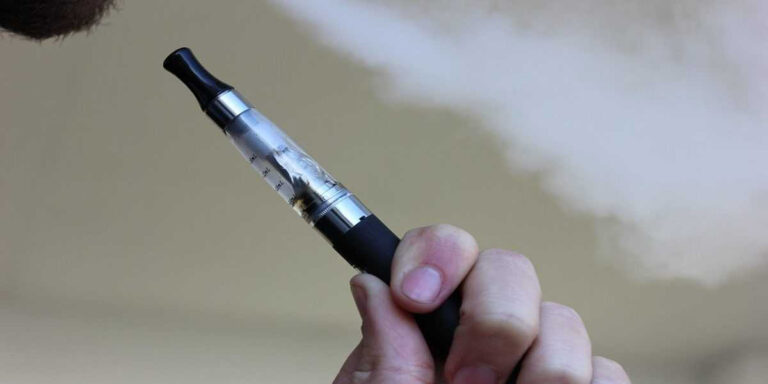On August 6, Philip Morris announced the launch of a new cigarette alternative, Levia, aimed at circumventing the Dutch ban on flavored tobacco and e-cigarette products. This innovative product, made from cellulose and containing nicotine, presents a unique challenge to current anti-tobacco legislation. The launch has sparked controversy and debate among health advocates, regulators, and industry stakeholders.
Levia: An Overview
Product Description and Features
Levia is a novel cigarette alternative that does not contain tobacco but includes nicotine, which is delivered through a device similar to an e-cigarette heater. The product is compatible with the IQOS ILUMA models and is available in two flavors. It is sold online for €6.60 per pack, offering a new option for nicotine users in the Netherlands.
How Levia Works
Users insert the Levia stick into a heating device, which releases chemicals when heated. This method mimics the experience of smoking traditional cigarettes or e-cigarettes but falls outside the current regulatory framework due to its classification as an herbal product.
Regulatory and Legal Landscape
Dutch Flavor Ban Context
In January 2024, the Netherlands implemented a ban on flavored e-cigarettes and e-liquids to deter children and young people from using these products.
Loopholes and Legal Challenges
Levia’s classification as an herbal product exempts it from the current anti-tobacco legislation. The Dutch Product Safety Committee (NVWA) stated it could not take action against Levia under existing laws. Future regulatory measures may be required to address such products, potentially through amendments to the current legal framework.
Potential Avoidance of Taxes and Regulations
Philip Morris’ CEO, Jacek Olczak, suggested that Levia might avoid the heavy taxes and stringent regulations that apply to other tobacco and nicotine products. This regulatory gap could provide a significant market advantage for Levia unless new legislation is enacted to cover such products.
Industry and Public Health Reactions
Criticism from Health Advocates
The “Smoke-Free Generation” movement (Rookvrije Generatie) criticized Levia as a strategy to continue selling flavored smoking products under a different guise. Despite the absence of tobacco, the product’s nicotine content and unknown long-term health impacts raise significant public health concerns.
Insights from Addiction Researchers
According to the Dutch addiction research institute Trimbos, many young e-cigarette users also smoke traditional cigarettes, challenging the notion that e-cigarettes prevent smoking. Data from Trimbos indicates that nearly one-third of teenagers aged 12 to 25 smoke, and 70% of those who use e-cigarettes also smoke traditional cigarettes. This highlights the potential for products like Levia to contribute to nicotine addiction among young people.
Market Implications and Consumer Behavior
Sales and Distribution
Levia is marketed online, providing easy access to consumers. Its price point and availability in flavors are likely to attract users seeking alternatives to traditional cigarettes and banned flavored e-cigarettes.
Impact on the E-Cigarette Market
The introduction of Levia could disrupt the e-cigarette market, especially given the existing regulatory pressures on flavored products. Retailers and consumers may shift towards Levia, complicating efforts to reduce nicotine use among young people.
Consumer Confidence and Public Perception
The launch of Levia has implications for consumer confidence and public perception of nicotine products. While it offers a new option for nicotine delivery, the lack of regulatory oversight and potential health risks may affect public trust in such alternatives.
Conclusion
The introduction of Philip Morris’ Levia represents a significant development in the landscape of nicotine products in the Netherlands. By circumventing the existing flavor ban, Levia poses new regulatory challenges and raises concerns among public health advocates. As regulators and industry stakeholders navigate this evolving scenario, the future of nicotine regulation in the Netherlands remains uncertain.
FAQs
What is Levia and how does it work?
Levia is a cigarette alternative made from cellulose and containing nicotine. Users insert the Levia stick into a heating device, which releases chemicals when heated, mimicking the experience of smoking.
Why is Levia not covered by the Dutch flavor ban?
Levia is classified as an herbal product, which exempts it from the current anti-tobacco legislation in the Netherlands.
What are the health concerns associated with Levia?
Despite not containing tobacco, Levia includes nicotine, which is addictive. The long-term health impacts of using Levia are currently unknown, raising concerns among health advocates.
How might Levia affect the e-cigarette market in the Netherlands?
Levia could disrupt the e-cigarette market by offering a flavored alternative not covered by the current ban. This may attract consumers and complicate efforts to reduce nicotine use among young people.
What are the potential regulatory responses to Levia?
Future regulatory actions may involve amendments to existing laws to cover products like Levia, ensuring they are subject to similar oversight and restrictions as other nicotine products.
How has the public and industry reacted to Levia’s launch?
Health advocates have criticized Levia for circumventing regulations, while industry stakeholders are concerned about its impact on market dynamics and regulatory compliance.
References:
- [Dutch National Institute for Public Health and the Environment (RIVM)] – Information on public health regulations and research.
- [Trimbos Institute] – Research and data on addiction and substance use.
- [Netherlands Food and Consumer Product Safety Authority (NVWA)] – Regulatory body overseeing product safety in the Netherlands.
- [Philip Morris International] – Official site for updates and information on new product launches.


















